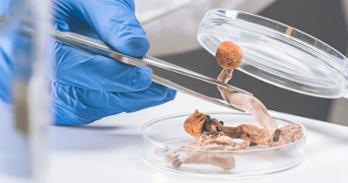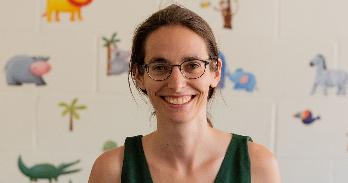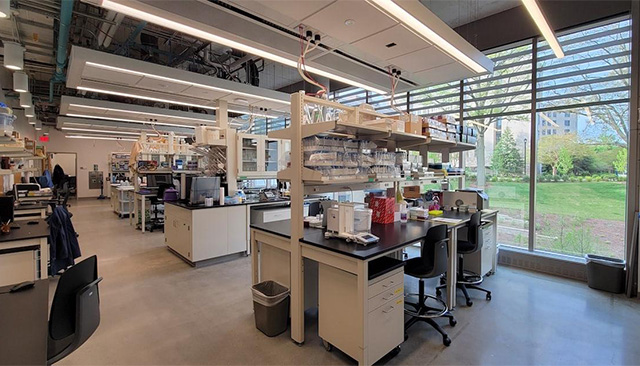You are here: American University College of Arts & Sciences Department of Neuroscience
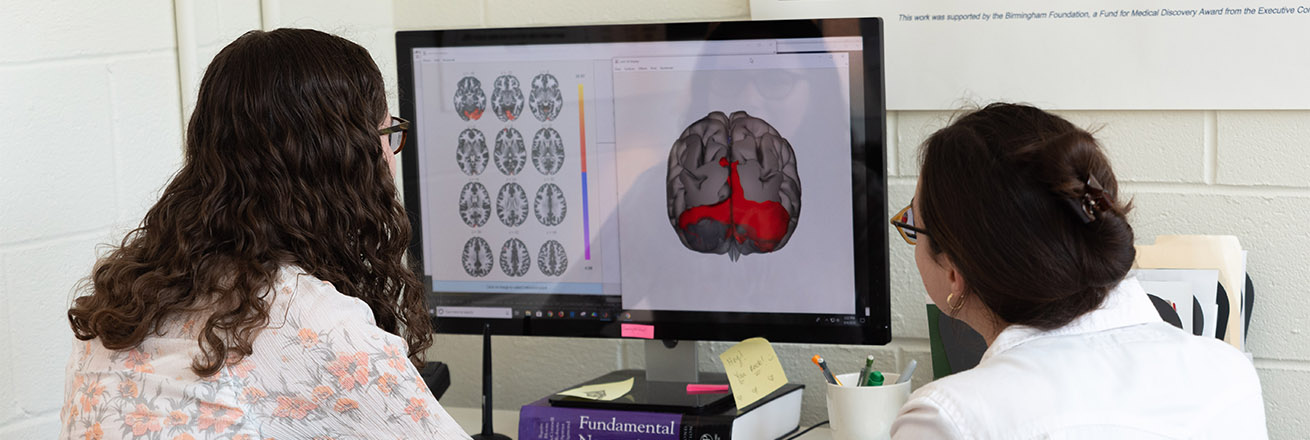
Department of Neuroscience

Contact Us
Neuroscience at AU
The faculty in the Department of Neuroscience are dedicated to increasing basic knowledge of the brain and nervous system with the goal of improving the understanding of mental, behavioral, and neurodevelopmental functioning. The Department offers a Batchelor’s of Science degree as well as a minor in Neuroscience. It is also the administrative home of the interdisciplinary Behavior, Cognition and Neuroscience (BCaN) PhD program and the university-wide Center for Neuroscience and Behavior (CNB). All members of the Department of Neuroscience faculty direct active research programs spanning topics in addiction, decision-making, development, memory, neurohormonal regulation, and nutrition, among others:
Research Labs & Projects
- Behavioral & Neural Homeostasis Lab, Center for Neuroscience & Behavior, and Laboratory for Behavioral & Neural Homeostasis
T. Davidson - Computational & Systems Neuroscience Lab
M. Laubach - Developmental Cognitive Neuroscience Lab
L. Bayet - Laboratory for Neuroendocrinology
C. Saldanha - Nutritional Neuroscience Lab
K. Holton - Psychopharmacology Lab
A. Riley
See also: undergraduate Research Opportunities with neuroscience faculty.
Recent Faculty Highlights
Please find more research and professional activites from faculty and students at our Research & Publications page.
-
Colin Saldanha spoke with NPR about flexibility and plasticity in the brains of songbirds.
-
Laurie Bayet was awarded the 2023 NARSAD Young Investigator Grant
- An AU team led by Bei Xiao and other faculty won a $5.7 million cooperative research agreement from the US National Science Foundation’s Accelerating Research Translation program. The award will help AU foster greater use of evidence in the public and private sectors by producing new knowledge on best practices in research translation, training scholars in the effective conduct of research translation, and supporting the dissemination of research findings that have the potential to benefit society.
- Bei Xiao was awarded $420K from the NIH/National Eye Institute to support the project "Learning diagnostic latent representations for human material perception: common mechanisms and individual variability."
- Bayet L. (2022) How infants learn from a world of faces : Implications for racial biases and maskwearing. Policy Insights from the Behavioral and Brain Sciences 9, 65-72. DOI: 10.1177/23727322211068007.
- Riley, A., Manke, H., and Huang, S. (2022) Impact of the aversive effects of drugs on their use and abuse. Behavioural Neurology, 2022, 8634176, 1-27. doi: 10.1155/2022/8634176
- Davidson, T. L. & Stevenson, R.J. (2022). Appetitive interoception, the hippocampus and western‑style diet. Reviews in Endocrinology and Metabolic Disorders, 23, 845–859.
- Davidson, T.L., Ramirez, E., Kwarteng, E.A., Djan, K.G., Faulkner, L.M., Parker, M.N., Yang, S., Zenno, A., Kelly, N.R., Shank, L.M., Tanofsky-Kraff, M., Snelling, A., Irvine Belson, S., Hyde, A., Chen,K.Y., & Yanovski, J.A. (2022), Retrieval-induced forgetting in children and adolescents with and without obesity, International Journal of Obesity, 46, 851–858.
- Holton KF. Micronutrients May Be a Unique Weapon Against the Neurotoxic Triad of Excitotoxicity, Oxidative Stress and Neuroinflammation: A Perspective. Frontiers in Neuroscience, section Neuroenergetics, Nutrition and Brain Health. 2021 Sep; 15:726457. DOI: 10.3389/fnins.2021.726457.
- Katie Holton received a grant from the Department of Defense’s Congressionally Directed Medical Research Program to conduct a multi-site clinical trial titled, “Confirmation of the Low Glutamate Diet as a Treatment for Gulf War Illness.”
- Saldanha, CJ. (2022). Spatial and Temporal Specificity of Neuroestradiol provision in the songbird. J. Neuroendocrinology.
- Amarante, L. M., & Laubach, M. (2021). Coherent theta activity in the medial and orbital frontal cortices encodes reward value. eLife, 10, e63372.
- Kisner, A., Slocomb, J. E., Sarsfield, S., Gupta, J. F., Kumar, A., Aponte, Y. Electrophysiological properties and projections of lateral hypothalamic parvalbumin positive neurons. PloS ONE. 13(6): e0198991. DOI: 10.1371/journal.pone.0198991.
Student Highlights
- Neuroscience PhD candidate Chenxi Liao’s article, "Unsupervised learning reveals interpretable latent representations for translucency perception," is the cover story for PLOS Computational Biology.
- Jazelle Pilat participated in an NIH funded Training Course in fMRI at University of Michigan, summer 2022, and received an MBES NSF-funded travel award.
- Jensen Palmer was awarded a 2022 Cosmos Scholar Grant.
- Laura Rice was named Outstanding Scholarship at the Graduate Level, American University, 2022.
- Olivia Dragovits was awarded first place for her research presentation in the NASA DC Space Grant Consortium student research competition and the AU Student Award for Outstanding Achievement in Undergraduate Research, 2022.
- Marissa Marko received a Center for Neuroscience and Behavior Research Summer Award.
- Samantha White published findings related to her dissertation in an eNeuro article, which was then featured by the journal as a noteworthy publication and received a Cosmos Scholarship Award from the Cosmos Club Foundation in support of her dissertation work.
Spotlight
Laura Rice
PhD, Behavior, Cognition, and Neuroscience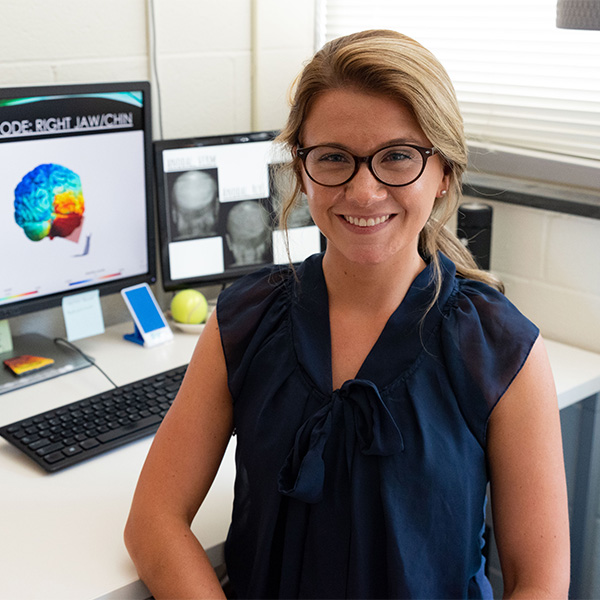
More about Laura
Since arriving at American University in 2017, Laura Rice (PhD candidate, Behavior, Cognition, and Neuroscience) has been hard at work in the classroom and the laboratory, investigating the role of the cerebellum in autism.
Laura is using a combination of neuroimaging and neuromodulation methods in her research, which suggest that the cerebellum supports features of autism through its role in modulating neural circuits and behaviors. She uses a transcranial direct current stimulation (tDCS), a noninvasive form of neuromodulation, to electrically alter the cerebellum and tune neural circuits and behaviors in adults with and without autism. Her preliminary findings suggest that cerebellar tDCS alters neural circuits that underlie social behaviors in autism.
At American University, I have developed immensely as a scientist through plentiful opportunities to present my research findings, pursue collaborations, earn funding, and attend symposia, conferences, and workshops with the field's leading experts. My mentor, Dr. Catherine Stoodley, has been instrumental to my growth and development as a scientist. She strikes the perfect balance between providing guidance and fostering independence, and she has not only helped me to grow as a scientist, but as a student, teacher, mentor, and human. Her leadership and mentorship have helped me to build resilience and confidence as a woman in STEM.

